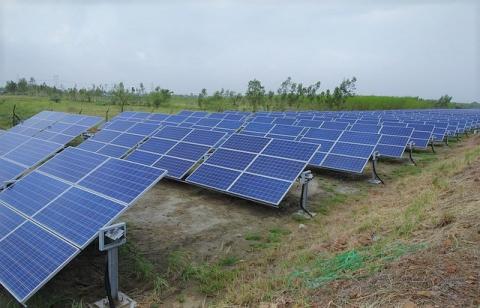
Title: Philippines National Renewable Energy Program
Language: English
Nature: Guidelines
Published: March 1, 2021
Region: East Asia and Pacific (EAP)
Country: Philippines
Sector: Energy and Power
Topic: Climate-Smart
Keywords: Climate Smart, Renewable Energy, Energy and Power PPPs **
Document Link(s):
Document Summary:
The development and optimal use of the country's renewable energy resources is central to the Philippine's sustainable energy agenda. Renewable energy is an essential part of the country's low emissions development strategy and is vital to addressing the challenges of climate change, energy security, and access to energy.
Document Details:
The National Renewable Energy Program (NREP) outlines the policy framework enshrined in Republic Act 9513. It sets the strategic building blocks that will help the country achieve the goals set forth in the Renewable Energy Act of 2008. The NREP signals the country's big leap from fragmented and halting RE initiatives into a focused and sustained drive towards energy security and improved access to clean energy.
The NREP sets out indicative interim targets for the delivery of renewable energy within the timeframe of 2011 to 2030. Meeting the massive targets upto 2020 will be challenging as detailed planning, financing, and building of renewable energy infrastructure will have to be undertaken at a scale, and within a time frame, never done before.
The NREP lays down the foundation for developing the country's renewable energy resources, stimulating investments in the RE sector, developing technologies, and providing the impetus for national and local renewable energy planning that will help identify the most feasible and least-cost renewable energy development options.
The NREP proceeds from the assumption that certain activities can be taken right away; while others will take time to implement. As a national program, it will require periodic review to ensure it conforms to the policy objectives set out in RA 9513.
Beyond the scale, however, are fundamental issues of transmission and grid integration for intermittent RE resources. Social and economic impacts cannot be overlooked. These are issues that will be kept under close review. Action shall be taken toward meeting the challenges of balancing the country's energy security needs and the over-riding goal of providing clean, affordable, and sustainable energy for all.
The NREP promises a continuing and well-coordinated effort to drive development in the RE industry, promote technology advancements, and achieve economies of scale. It provides the basis for national and local renewable energy planning that will identify specific actions and times upon which outcomes will be generated. Such plans will factor in cross-cutting issues and essential interventions in the areas of transmission development and integration, energy efficiency, off-grid electrification, climate change, technology transfer and development, local capacity building, and partnerships.
Given the dynamic nature of the country's energy sector, the NREP is a living document. Forecasts and targets will be updated periodically as key developments in the energy sector emerge. Programs will be reviewed. Deployment of RE projects will be monitored to ensure that stakeholders make good on their promise to deliver. Above all, partnerships will be enhanced to ensure a country-wide approach in developing the country's renewable energy resources.
Find more at Climate-Smart PPPs and Energy and Power PPPs
Image by Pixabay
Updated: October 25, 2021
Related Content
Climate-Smart PPPs
Climate-Smart PPP Legal and Regulatory Framework
Preparing, Procuring and Implementing Climate-Smart PPPs
Sector-Specific Content on Climate-Smart
Renewable Energy
Climate-Smart PPPs: Further Reading and Resources
Energy and Power PPPs
Energy Laws and Regulations
Energy Licenses and Licensing Procedures
Energy & Power PPP Toolkits
Gender & Energy Projects
Further Reading on Energy and Power PPPs